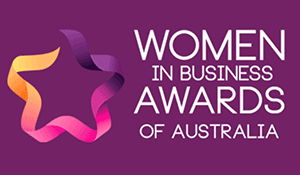Born in the 1940s at a time when women were expected to “find the right man, have a family and become a Stepford wife’’, Lorraine Martin emerged as a trailblazing business pioneer.
Leaving school at age 15, she found employment at wool firm Elder Smith, then worked for barrister Wally Campbell who would later become the Governor of Queensland and who ms Martin described as her first mentor. She married a lawyer and had three children by age 24, and later studied English and Fine Arts. After initial thoughts of becoming an English teacher, she was offered a role as a commercial teacher but opened her own college instead.
Lorraine Martin College – teaching shorthand, typing, bookkeeping and grooming – was established in October 1976 with only three students. By Christmas that year, there were 90 students enrolled. At its height, it was the largest private provider of vocational students in Queensland. Ms Martin also opened an employment agency know as Lorraine Martin Personnel and started Queensland’s first private English Language College known as Queensland English Language Centre (QELC).
Lorraine Martin became a household name after Lorraine Martin Personnel won the tender as official employment agency to recruit, train and supervise all attendants and volunteers at Brisbane’s World Expo 88 that put Queensland on the international stage.
In 1987 she opened the Queensland chapter of Les Femmes Chefs d’Entreprises Mondiales (World Association of Women Entrepreneurs) known in Australia as “Women Chiefs”. She became Australian President and went on to establish other chapters in Tasmania, South Australia and West Australia. During her career, Lorraine Martin sat on more than 30 boards and committees, often as the only woman.
She was named Officer of the Order of Australia (AO) in 1994 for her services to business and commerce, particularly in the field of education and training.
Ms Martin was inducted into the Queensland Business Leaders Hall of Fame in recognition of groundbreaking visionary contributions of national significance to private education businesses and for enduring and significant community services. “I’m very proud of the legacy that I’ve left,’’ Ms Martin said.
“I think I was a pioneer. I look back now in retirement at what I’ve done, and I am incredulous. I d on’t know how on Earth I did it. It’s like someone running a marathon – you don’t think when you are doing it, ‘What am I doing?’, it’s later you think, ‘How the heck did I do that?’ I feel very satisfied with what I’ve done in this life. Very happy, very honoured and joyful that these opportunities have been offered to me.’’
Readers also enjoyed our story about Ashleigh Morris CEO Coreo













